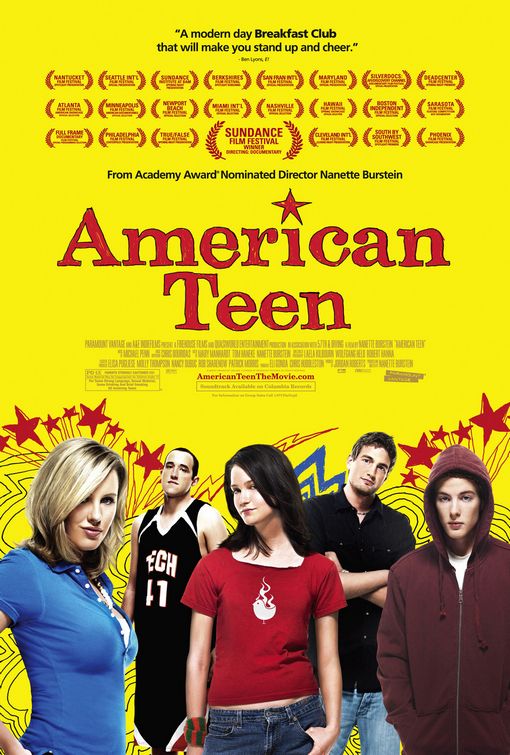Hey, everyone. “Moriarty” here.
It’s been a rough summer for documentaries at the box-office, but a few films have managed to break through and at least create a bit of buzz. It may not have translated into giant DARK KNIGHT style business, but at least they’ve made some impression. And in one case, I’d say one of the very best films of the year deserves more attention than it’s gotten so far, and I hope the film finds a second wind as it continues to roll out in theaters around the country.
AMERICAN TEEN certainly got the biggest push possible from Paramount Vantage when they released it, and they worked very hard behind the scenes to get it in front of the press and also make the “cast” available. After you’ve dealt with enough studio publicists over the years, you get a good feel for when they really love something, and they really loved AMERICAN TEEN. It was obvious in the energy they put into their work on the film. I wish I had loved it as much as they did, but the truth is that Nanette Burstein’s technique on the film raises so many red flags for me as a viewer that I had trouble offering up the endorsement. I think it’s skilled filmmaking in many ways, but when you’re dealing with documentaries, there is an expectation of a certain degree of honesty, and I didn’t feel like I could trust what I was watching enough to hand myself over to it. What a shame.
The film itself isn’t a particularly novel conceit... when I reviewed Kirby Dick’s far superior CHAIN CAMERA at Sundance in 2001, what struck me about it was the way his choices as a filmmaker (he gave the kids a camera and then asked them to film themselves instead of having a crew follow them around) removed him from the process enough that I felt like we were seeing these kids as they really are. Burstein, on the other hand, has created such a controlled environment and structure for her movie that although it ends up working well as a narrative, that comes at the expense of a certain degree of credibility. Her film feels like a Hollywood version of real life, like a very skilled episode of something like FRIDAY NIGHT LIGHTS. She follows a group of students through a full year of high school, and in the process, she tries to dispel certain stereotypes by taking us behind the images that kids project, hopefully so we can see something universal in the experiences they all have in common.




Drew McWeeny, Los Angeles



Drew McWeeny, Los Angeles
